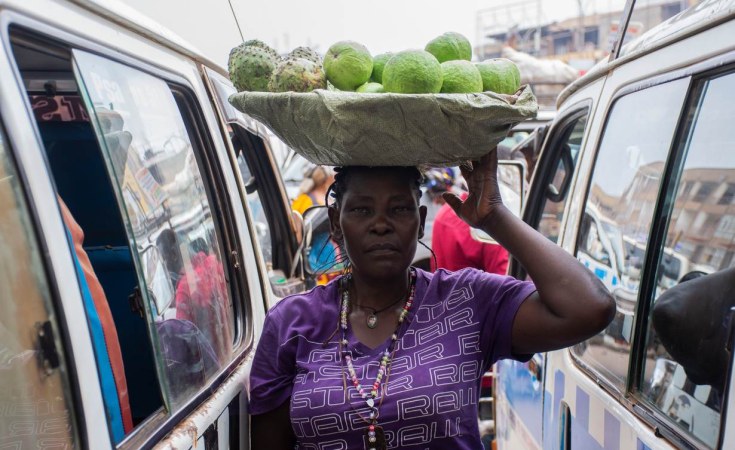The recently released parliamentary committee report on the national economy and the state of indebtedness, grants, and guarantees indicates that Uganda's public debt stock had increased by 22 per cent.
The money Uganda owes to different creditors shot up to Shs 69.513 trillion ($19.54 billion) by the end of the financial year 2020/21, from Shs 56.938 trillion in FY 2019/20. Such high debt levels contribute immensely to the high cost of living that many people in the country face. As a result of high debts, a country's credit profile drops. This means a country borrows at a higher interest rate, the effect of which is passed onto the final consumer.
From the report, preliminary statistics received by the committee indicated that by the end of June 2022, the total public debt stood at Shs. 78.799 trillion ($20.98 billion). Of this debt stock, Shs 48.136 trillion ($12.8l4 billion) is external while Shs 30.662 trillion ($8.162 billion) is domestic debt.
By June 2022, Uganda's debt to Gross Domestic Product ratio stood at 48.6 per cent, a few percentage points from the agreed East Africa ceiling of 50 per cent. The report attributed the rise of the debt to the deliberate effort by the government of Uganda to increase public investment in infrastructure in preparation for oil production and the need to finance Covid-19-related expenditures.
The government is also increasing investment in other key sectors such as agriculture, energy, education, water and environment and roads. Mary Sserumaga, an independent policy expert, said Uganda's debt had become unsustainable.
"The country is in debt distress as it is. Look at our failure to respond to annual disasters. Look at the education and health outcomes; rising school drop-out rates, sharply rising undernourishment, etc".
In her December 2017 article published by the Committee for the Abolition of Illegitimate Debt, Sserumaga claimed Uganda was in imminent danger of defaulting on its debt repayment. She hinged her argument on the 2017 Auditor General's report which warned that interest payments on the public debt had exceeded the legal limit of 15 per cent of the annual budget. The Auditor General further warned that the debt would likely become unsustainable.
Sserumaga called for an audit of the debts secured from both the World Bank and the International Monetary Fund. This, she noted, would reveal that the funds had contributed little if anything to Uganda's development.
"... If that is confirmed by a debt audit, then repayment by the state is out of the question."
Commenting on the increase in the committed but undisbursed debt, Sserumaga said that most projects in Uganda had failed because the country is unable to provide counterpart supplies and funds. Committed but undisbursed debt increased by 11 per cent from $5.3 billion in financial year 20l9/20 to $5.9 billion in the financial year 2020/21. This was blamed on the slow implementation of some of the ongoing projects.
However, Alex Kakande, a financial expert and auditor with accounting firm Ernst and Young, said Uganda's capacity to unlock its real growth potential is hinged on its investments in critical sectors.
"Borrowing is one way of accessing the necessary funds needed by a country to invest in critical sectors. The 50 per cent level is realistic: we have the capacity for more. The only concern about the government's ballooning debt is how it's put to use. The majority of the money we borrow isn't efficiently utilized. Our project completion rate is below all our neighbours'."
Citing a study by the National Planning Authority, Kakande said one of the bottlenecks of Uganda's growth was uncompleted projects, many of which were run on borrowed funds. This, he said, creates a challenge that even with the low-interest rates charged on the loans, their cost becomes high since they neither deliver the intended plans and benefits nor unlock the growth of the country as it should be.
Kakande noted that although the country has registered progress in the roads and energy sectors, the cost has been expensive.
"In the last three years, our appetite for loans has increased our interest payments. In the last three financial years, debt servicing takes a significant portion of the national budget. Some of the road networks built in the last decade can be argued that they are in net cost if we do a cost-benefit analysis. Some areas produce nothing, consume very little and the expensive roads that have been constructed in these areas have only managed to improve the movement of people from one way to Kampala, not the other way round. No realistic capital has been obtained from these road networks. The ease of access to efficient transport has sparked the growth of more agricultural sectors in districts like Isingiro that had no ambitions in the early 2000s."
Asked about the best management of debt, Kakande said: "We have staked our future as a country on the flow of oil. As long as this is still guaranteed, the country still has room to borrow and invest in critical sectors. The biggest challenge is the best use of the money borrowed, using it for intended purposes, improving on project completion in time to realize the benefits of the loans and grants before repayment, quality over quantity of projects that allow us to reduce on re-spend on specific projects. If a road is constructed, how long should it take before it is repaired?"


